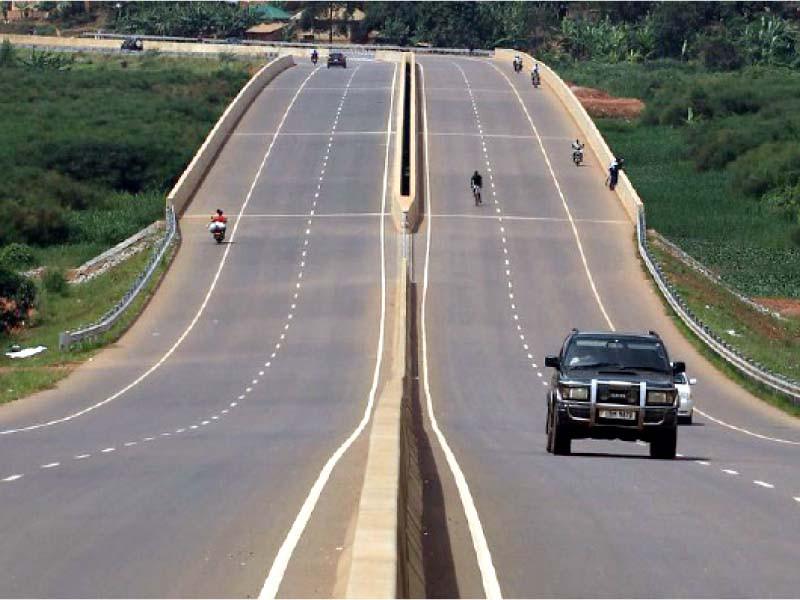Islamabad:
On Wednesday, the federal government approved the construction of the Sukkur -Hyderabad motorway (M -6) at the cost of 395 billion rupees – up 138% – and set up a ministerial panel to find credible sources of funding, bringing the project back into the public sector financing mode.
The Central Development Working Party (CDWP), during a meeting chaired by the Minister of Planning Ahsan IQBAL, approved 10 different development projects, including the Hyderabad-Sukkur highway. The CDWP referred the motorway project to the Executive Committee of the National Economic Council (ECNEC) for final approval.
This is the fourth time that the highway project has been going to the federal government’s approval phase after the first three attempts to finish it under the public-private partnership mode have failed.
The project had been approved for the first time in 2020 at the cost of RS165 billion. Then, the cost was revised until Rs191 billion in 2021 and the third time, it was approved at 30 billion rupees in 2022.
The fourth approval was given at a total price of RS395 billion, up 229 billion rupees or 138% compared to the first approval five years ago. The project was also brought back into the fold of the public sector development program, although the CDWP has kept the open private partnership option.
Hyderabad at Sukkur Motorway is the only remaining vital link in northern connectivity to South and it is an absolute priority of the Pakistani peoples party. The PPP has linked its support to the budget to accept all its requests, including the inclusion of the highway in the federal PSDP.
The government allocated 15 billion rupees for the construction of the project in the next financial year, which is less than 78 billion estimated rupees necessary for the first year of construction.
IQBAL has led the National Highway Authority and the Division of Economic Affairs to ensure that confirmation of the financing of the remaining sections of the project is subject by the end of August.
Iqbal announced the training of a high -level committee chaired by the Federal Minister of Finance for the finalization of credible funding sources.
The Committee will include the federal ministers of communications, economic affairs and planning, as well as senior officials from the NHA and the Ministry of Communications.
The Minister of Planning proposed to explore innovative methods of financing to accelerate the implementation of the project and guarantee its appropriate completion.
The government launched the project to various forums, in particular for the financing of the Chinese-Pakistani economic corridor, Azerbaijan and the Islamic Development Bank. Until now, the Islamic Development Bank has indicated that their interest in potentially funding the last three sections out of five with a loan of $ 475 million. The IDB should approve the loan by September this year. President CDWP IQBAL asked the authorities to find funding avenues by August this year so that the project is finished.
The Islamic Development Bank said they would address other financiers such as the Arab Development Group and the Asian Investment Bank in Infrastructure (AIIB) to finance the first two sections of M-6.
The National Highway Authority proposed that the first two sections be completed under the public-private partnership mode. However, the planning commission opposed the approval of the board of directors of the PPP authority was not available, which was compulsory.
Due to the large size of the project and financial constraints, the NHA has planned to undertake the M-6 motorway project in sections and in hybrid financing mode. The remaining sections according to their commercial viability will be offered for companies in the mode of private investment as part of the PPP arrangement.
IQBAL said that the execution of this project will bring substantial benefits and has great importance in promoting Pakistan’s economic development. He stressed that, as part of the national program to extend the country’s automotive infrastructure, this project will help stimulate the growth of areas along its alignment and improve regional connectivity.
Eastbay Expressway
The CDWP also recommended the construction of the Eastbay Expressway Phase II project at the cost of RS30.2 billion in Ecnec for a more in -depth examination. The project should be funded by foreign funding – a Chinese subsidy to measure the cost of 95%.
The project provides for the construction of a 13.8 km long car highway to connect the new Gwadar International Airport (NGIA) to the end of the existing Eastbay motorway. This high -speed route with limited access is designed to facilitate freight traffic between NGIA and the port of Gwadar. The project also includes essential infrastructure such as rainwater drainage system, toll space, safety fence, watches and street lighting.
Proposed under the CPEC, the project was discussed and prioritized during several joint CPEC committee, the Chinese part emphasizing its importance to improve the connectivity and operational efficiency of the port.
The CDWP also recommended the construction of Zhob to Makhter Road at a cost of 15 billion rupees. The construction of a road to connect to the Iranian border has been approved at RS11 billion costs. The objective of this road construction project is to develop a safe, efficient and sustainable transport route that will connect key locations, improving global accessibility and mobility in the region.




